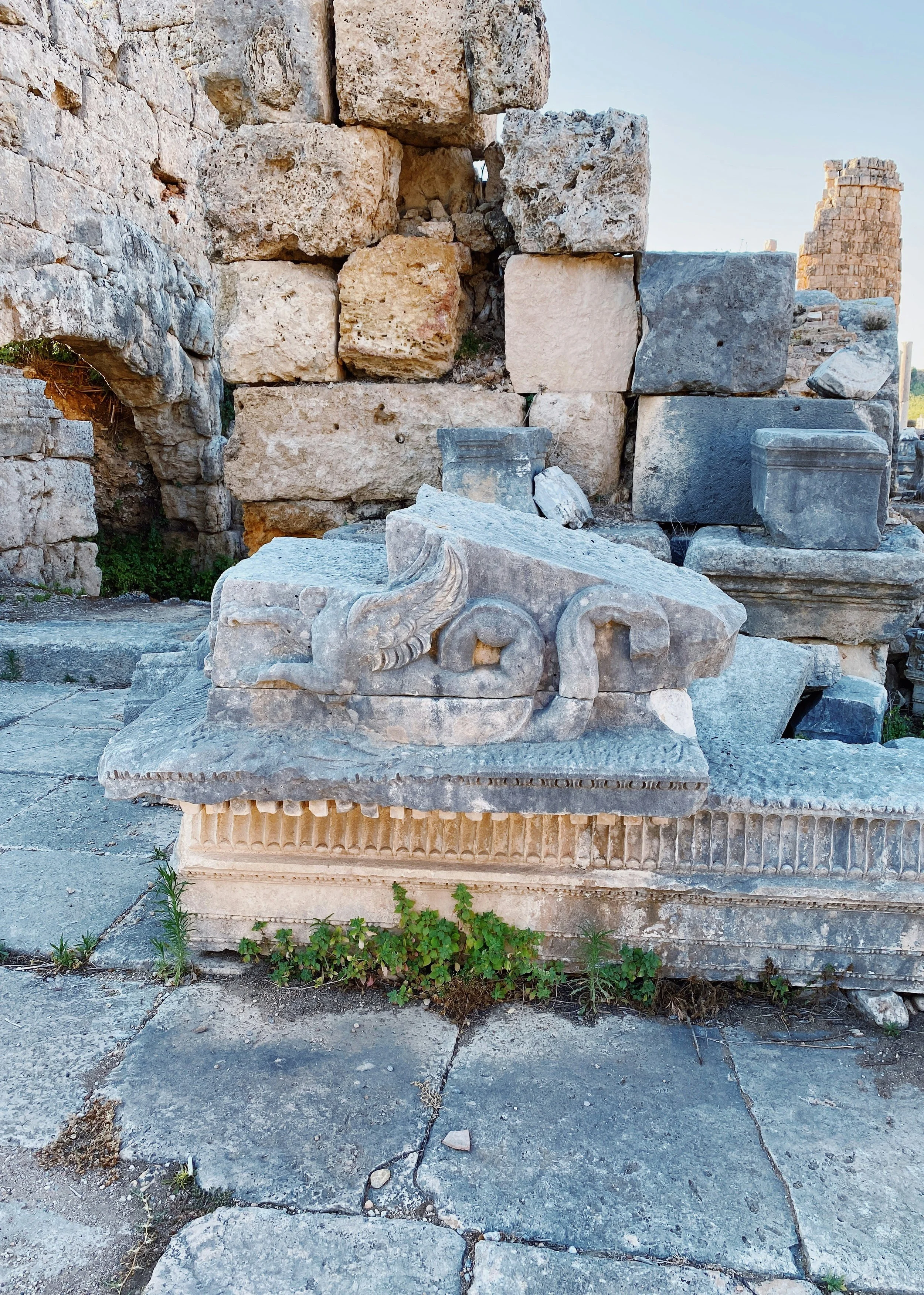RESOURCES
Articles
What if the most strategic thing you could do for God’s mission… is pray?
Before the plans, the conversations, the courage—there is dependence. In this powerful adaptation from A Field Guide for Everyday Mission, we’re reminded that mission doesn’t begin with better methods, but with deeper surrender. Drawing on Andrew Murray’s call to humility and Jesus’ invitation to abide in the Vine, this article outlines five transformative prayers that shape a life on mission.
What if Christian community wasn’t built on preference, but on promise? This reflection explores gospel partnership as shared lives, shared mission, and deep joy in what God is already doing.
Learn how to create a compelling youth ministry vision statement in six practical steps. This guide from Kara Powell explains what a vision statement is (a shared story of future hope rooted in your ministry’s “why”) and walks through a collaborative process—brainstorming, reflection, group synthesis, feedback, drafting, and distilling into a clear, inspiring sentence. With examples and tips on communicating your vision widely, this post helps church leaders craft a purpose-driven vision that guides mission and energizes their team
What does it look like to take kids and teens seriously as members of the church—now, not someday? At Salt+Light, we’ve found that when young people are invited to serve, disciple others, and participate meaningfully in church life, they rise to the occasion. This piece explores our stair-stepped, intergenerational approach to discipling Gen Z and Gen Alpha, why early responsibility matters, and how equipping kids and teens today helps form the leaders the Church will need tomorrow.
Christmas has a way of softening hearts. Todd shares how simple invitations—especially to holiday services—can open surprising doors for long-term spiritual growth.
This fall has felt unusually full—good things layered on top of one another until even the most carefully built rhythms disappeared. As someone who finds rest in planning and routine, the loss of predictability exposed just how much I rely on my calendar for stability. Yet in the chaos, God has been quietly reshaping my trust—meeting me not in well-ordered seasons, but in daily, moment-by-moment provision. Through unexpected grace, small mercies, and interrupted plans, I’m being reminded again of an old but necessary lesson: dependence on God isn’t seasonal—it’s daily.
Why does ministry feel so much easier than discipleship—and what happens when we flip the script?
The Bible displays two primary groups of people that God sends us to, as we live out His mission: those in need and our neighbors.
Healthy plants make more healthy plants. Healthy platypus and giraffes make more healthy platypus and giraffes. Healthy humans make more humans. Healthy disciples make more disciples. Healthy leaders make more leaders. And healthy churches make more churches! No healthy entity is an end unto itself; God created good things, and designed them to multiply. That’s God’s heart for multiplication, from Genesis 1 and still today!
As we step into 2025, the dawn of a new year in our culture is an invitation to dream, plan, and set new goals. As a leader in the church and God's kingdom, I have found this cultural rhythm to be a good opportunity to prayerfully consider what God may desire to do in my life. Whether you embrace these things as a leader or really dislike the trend of new year's goal setting, a new year can still feel both exciting and daunting.
My friend Matt has lamented before, that church leaders can skip the season of Advent and instead emphasize Christmas for the whole month of December. He claims that doing so diminishes the sweetness of Christmas! The joy of Jesus’s arrival, the peace and hope promised in the manger, the culmination of God’s love by sending a Redeemer and Messiah are only felt in their true power if contrasted against the silence, the waiting, the yearning, and even the hopelessness that’s historically defined the Advent season.
If you walk into any Catholic church, you will see the anguished, bloody, broken body of Christ hanging from a cross for people to contemplate and grieve. Wander around any cathedral and you will discover provocative artwork hanging on the walls that depict the colorless, lifeless body of Jesus being peeled off the cross by the embrace of St. John and the women who had loved and been loved so deeply by Christ. Perhaps one of the unintended consequences of the historical schism between Catholics and Protestants has been a lost Christian practice of regularly gazing at the dying or dead body of Jesus. Much of American Christianity proclaims a Christ-less cross. While there are theological reasons for the empty cross, I wonder if our churches are ironically avoiding an invitation to behold the crucifixion of Jesus, distorting our capacity to see and love the suffering of the world.
For many Christians, it’s easier to display the good news of Jesus through our actions, than to declare it with our words. In fact, many modern evangelistic methods – from the cold-call knock on a door, to a forced conversation, to a specific pattern of verses or empirical truths – have led many Christians NOT to share the gospel. It’s even easy to make excuses: we don’t want to misrepresent God; we’re scared of being asked a question we can’t answer; we don’t want to offend people – so we stay silent.
The spirit of justice is the inner force that moves us to demand dignity and respect for ourselves and others. It is the cry of our souls for the world to be a fair and kind place. It is the power that inspires people to speak up when others remain silent. To move when others stand still. To put themselves on the line when others choose to remain comfortable.
Eight flights and 12 lodgings across 10 cities in five states (of only seven!). More than 37 trainings and meetings, with nearly 750 people. Deep, rich, intentional time with 48+ churches' leaders, over the course of 38 days. That’s the “quantitative” side of our family’s summer, several weeks of which was spent in Australia (in slang, “Oz”). But the “qualitative” side is what I want to share in this Equipping Group summer recap.
The best definition I’ve heard for burnout is from a researcher who calls it “Voluntary self-exploitation”. Perhaps the most helpful burnout definition for ministry leaders is this; “A syndrome of emotional exhaustion and cynicism that occurs in individuals who do ‘people work’ of some kind”. I asked a group of friends who have experienced burnout,“What did it feel like?” Emptier than empty. Freezer burn. Full, yet completely empty. Depleted mentally and emotionally. Ice skating uphill. Numb.
We have a worthy Lord to live for and we only have one soul to steward in this life. And if we want to be good stewards of the life and resources God has given us, we must infuse intentionality into our lives. We need to act with intention and maximize the moment.
Today I want to give you three quick tips that can help you maximize the moment in your life right now.
In August 2022 my wife and I stepped down from our roll as senior pastors of an amazing congregation we had led for over 36 years. When we started this journey in 1986 we had a desire to build something that would outlive us. At that time the norm in our ministry world was pastors moving every four to five years—often seeking a bigger church with better benefits.
This was the question that Jim Essian, a friend and fellow pastor in my city, asked 15 folks around a table in 2017. This was the third question he asked, with building gusto, after receiving rousing and unified responses from his first two questions: “Who believes Fort Worth needs the gospel?” “YES!” “Who believes that church planting is a way that can happen?” “YES!” Then came the climactic moment: “Who’s ready to plant churches together?” …crickets. No response. The air was sucked out of the room. No one was ready to work together.
Recognizing and stewarding one’s personal strengths and limitations can lead to more faithful and effective ministry.
What happens when these universal struggles with mental health and mental illness occur in the context of ministry? The phrase in ministry distinguishes and intensifies the words mental health and mental illness. Experiencing any mental health struggle, from mild depression to bipolar disorder, in the middle of spiritual ministry to others complicates how such mental struggles play out in our lives. If we could experience our mental health issues in a vacuum, if they didn't affect others around us, we could navigate them with fewer complications. That is, in fact, why, at the most intense moments of mental anguish, people are advised, or even forced, to remove themselves from their normal contexts and relationships to a place dedicated to their recovery.
As we approach Easter weekend, we want to pause and remember that the life, death, resurrection, and reign of Jesus is truly “good news” – on Easter, yes, and also in everyday life, all year long. But amidst competing worldviews, everyday busyness, and a context that prioritizes values over beliefs, it’s easy to relegate that “good news” to Sundays (or perhaps for some, this one Sunday annually), and live as if other forms of “good news” are better, more impacting, and more applicable to Monday - Saturday life, the rest of the year.
This experience shaped the past nine years, as I have led national church planting residencies for various organizations. In 2019 and again in 2023, we did a full-scale revision of our residency work. On one hand, The Equipping Group is collaborating with more organizations, churches, and planters than ever before. On the other hand, these revisions came from many lessons learned in training dozens of residents, from many states and beyond, who are now ministering in five countries.
As I reflect on the past eight years and look to the future, I wanted to capture and share five lessons we learned.
Fear and fire shone within this man’s eyes. He sat at a table with fellow Christian leaders. The pastor had asked that I speak to their leadership team about how to follow Jesus in our political moment. It was slowly dawning upon me that by “weapons,” this brother meant physical ones not spiritual.
What do you do as a leader, when things feel like they’re falling apart?
What’s your default response when you feel stretched too thin?
What happens when you can’t “fix” the thousands of things that people want you to fix?
Historically in seasons like these, my default response was to double down, to pile things on my plate, and to take a stronger hold on the things I could control, during the (many more) things I couldn’t.
But that posture only works for so long. Or more truthfully, it only even feels like it works… as I discovered the hard way.
Recently, I was asked to speak to a group of pastors from various countries in Africa. They sent me a series of questions that they wanted me to address, and I sensed that at the heart of a few of their questions was they were measuring of themselves with each other regarding the size of their church. I wonder where they got that from?
A promise of the Bible is that none of us are “everything enough” — because no human but Jesus was ever intended to be enough. No church is “everything enough” to accomplish the beautiful, weighty, spiritual task of sending — because no church without God’s Spirit can accomplish what only God can accomplish. Another promise of the Bible is that “God chose what is foolish in the world to shame the wise; God chose what is weak in the world to shame the strong; God chose what is low and despised in the world, even things that are not, to bring to nothing things that are, so that no human being might boast in the presence of God.” (1 Corinthians 1:27-29)
This year, many churches and leaders will wring their hands in worry about the political process in the United States. One way or another, on one side of the aisle or the other, Christians will be convinced that the destiny of Christianity, the existence of our country, and the state of our world will hinge on the contents of ballot boxes on the first Tuesday in November.






























